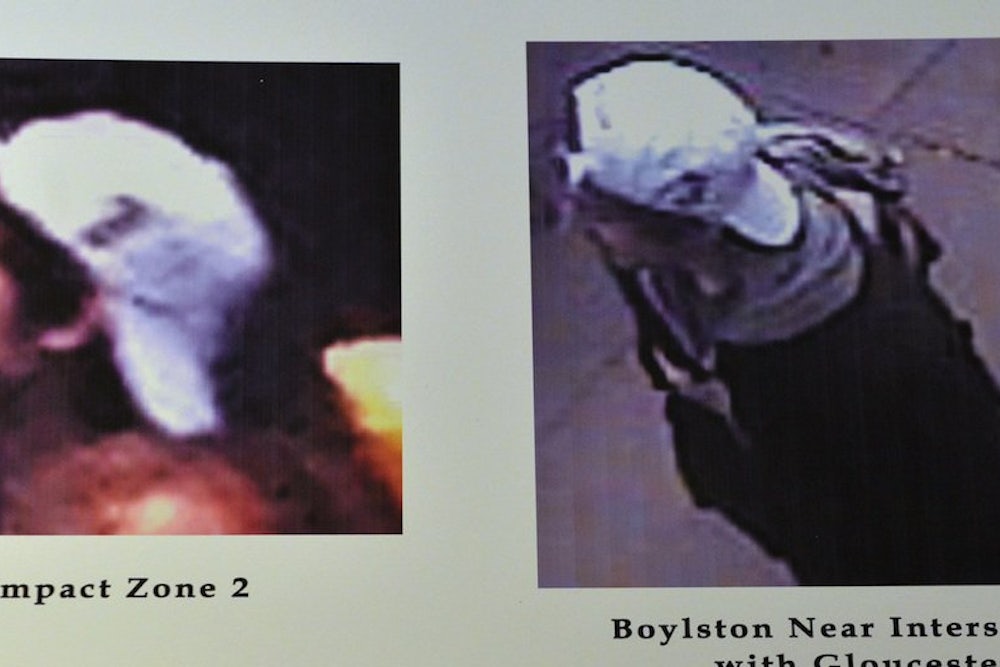Last week, when the FBI released wanted pictures of Tamerlan and Dzhokar Tsarnaev, almost immediately, they were dubbed “bros” for their backwards baseball caps and their apparently Caucasian features (which turned out to be, literally, Caucasian). Tweets came fast and furious about “brofiling.” “I hate to brofile, but suspect 2 literally looks like he just got back from a charity kickball greek week mixer,” wrote one user, referring to Dzhokar and his white baseball cap. "BROSAMA BIN LADEN?" tweeted a reporter from Talking Points Memo. When the brothers were identified, Slate’s John Swansburg combed Dzhokar’s Twitter account and dubbed it “somewhat bro-ish.” He liked rap, sports, Nutella, and the occasional piece of sexual imagery. “These seem like the stray observations of an American male who would wear his baseball cap backward; he lives up to the image in the minds of those who spent yesterday 'brofiling' him,” writes Swansburg.
What’s a bro these days, if an alleged terrorist can be one? The term, of course, comes from "brother." Somewhere along the line, it was coopted and shortened by the frat-boy contingent (maybe because fraternities have "brothers", too, it should be noted). It’s used in direct address still, as a marker of friendliness, and even in moments of alarm. “Don’t tase me, bro!” shouted a University of Florida student in 2007 at campus security, and the term became a meme. “Bro,” as a descriptor, means a dudely dude. (Not a manly man, it should be noted; that is something entirely different.) Bro is the guy crushing Natty Lights, the guy laughing at Dane Cook, the guy in, yes, the white baseball cap.
It’s also, often, a loaded term. The guys wearing Abercrombie and reading Tucker Max books are slightly out of step with the culture in 2013. The Urban Dictionary entries for bro are acidic. “An alpha male idiot. This is the derogatory sense of the word (common usage in the western US): white, 16-25 years old, inarticulate, belligerent, talks about nothing but chicks and beer,” reads one. “I think the contemporary connotation of a bro is a moron, a loud thoughtless male who may or may not sexually molest strippers,” a Columbia Business School student told me last year, referencing the famous Duke lacrosse case. “I would be complimented to be called a dude and insulted to be called a bro,” said another.
In dubbing Dzhokar a “bro,” no one meant that he appeared menacing—rather, the opposite. He appeared perfectly assimilated into American culture. He exhibited a flagrantly American maleness, one that it exists in a consequence-free, pleasure-focused realm in early adulthood. He liked what lots of dudes like, the same fashion and the same pop culture. He was part of that nationwide fraternity, that might not always be entirely enlightened but is not unfamiliar to us. Dubbing the suspect “bros” was in large part gallows humor, a way of dealing with the surprise that these bombers appeared homegrown, a threat from inside our culture. The strange sense of familiarity was only magnified by what we learned about the younger brother from his friends and social media accounts. He seemed more someone to be pitied—almost—than to be feared, just a young dumb kid. A bro under the influence of a brother.
We still don’t know exactly what motivated Dzhokar. What’s clear, though, is that the part of his soul that decided to participate in a plan to blow up a bomb at the Boston marathon is not so familiar to most of us—and that’s exactly the puzzling incongruity of his bro-ishnes. Terrorism is an awfully extreme case, obviously, but it’s not the first time we’ve been apparently surprised to see dark behavior from 'bros,'” whom we dismiss, easily and often, for the apparent superficiality of their concerns with partying, sports, and girls. But to believe you can know someone’s character from the way he wears his hat or the music he likes—that’s even more superficial. It’s easy to underestimate a supposed bro’s intelligence and depth, just as it’s also easy to underestimate his malevolence. Maybe it’s time to retire a signifier when it becomes more empty than the things it supposedly dismisses.
